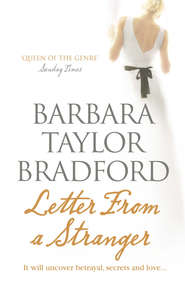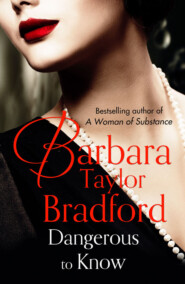По всем вопросам обращайтесь на: info@litportal.ru
(©) 2003-2024.
✖
Being Elizabeth
Автор
Год написания книги
2018
Настройки чтения
Размер шрифта
Высота строк
Поля
‘I asked Nicholas and Charles to call me on the mobile. Why should the whole household be awakened at six in the morning?’ He shook his head. ‘Like you, I hardly slept last night, I knew she couldn’t last much longer. I was on the alert.’
‘I assume Nicholas is on his way here? With the black box.’
‘He is. Actually, he’s had possession of the box since Friday. Mary’s people sent it to him that afternoon, so that he could bring it to you immediately. They thought she was about to die that day, but it was a false alarm and she didn’t. This morning, within half an hour of hearing the news, he set off. He’s driving up here right now, and he asked me to tell you that he looks forward to joining us for Sunday lunch.’
She smiled for the first time in days. ‘I’m glad to hear it.’
‘Sidney Payne also phoned. He was all for rushing up here, but I told him not to, explained we would be in London later in the week, and I would be in touch then. He told me three people had called him already, so the news of Mary’s death is spreading fast.’ Cecil grimaced. ‘Everyone loves to gossip, to speculate, so important news spreads like wildfire.’
Leaning forward, Elizabeth asked with sudden eagerness, ‘Who are we inviting to our first meeting?’
‘Your great-uncle Howard must be there, your cousins Francis Knowles and Henry Carray, Sidney Payne should come, plus some of the board members who have long been waiting for this day.’
She nodded. ‘I know who they are, and I can’t wait to see them. But what about those in the company who are against me?’
‘What can they do?’ Cecil asked, shaking his head. ‘Nothing! They cannot challenge you, Elizabeth. You are the rightful heir to Deravenels through your father’s will.’
‘They can torpedo me, work against me, trip me up, do me in, call it what you will.’ She shrugged. ‘They’re Mary’s cronies, and they’ll never like me. They never have.’
‘Who cares? Liking you is of no import! They have to respect you. That’s vital, the only thing that matters. And I’m going to make damn sure they do.’
Mary Turner, her sister, was dead. No, not Mary Turner, but Mary Turner Alvarez, wife of Philip Alvarez, the greatest tycoon in Madrid, a man who had used her money, weakened her resources, then abandoned her to die alone. But that’s what men did, didn’t they? Used women, then discarded them. Her father had taken all the prizes for doing just that. Don’t think ill of him now, Elizabeth warned herself. It was his Last Will and Testament that had held in the end. She was his third and last heir. And now Deravenels was hers.
Towards the end, Mary had had no alternative but to follow Harry Turner’s wishes. Nonetheless, earlier there had been desperate attempts on her sister’s part to cheat her out of her rightful inheritance.
Mary had first named her unborn son as heir apparent, that non-existent child she fantasized about, the one she thought she carried in her swollen belly. It was not new life reclining there but an inoperable cancer.
After this had come her most brilliant brainstorm, as Mary had called it. Her Spanish husband Philip Alvarez must inherit. After all, wasn’t he the most famous businessman in Spain, a seasoned entrepreneur, and who better than him to run the ancient company?
When this idea was promptly scuttled by those who could scuttle it, Mary had seized on their cousin Marie Stewart, she of Scottish-French descent and upbringing, a woman who was ninety per cent French, barely English at all. At the time, Cecil had wondered aloud what this Gallic vamp could possibly know about running an eight-hundred-year-old trading company based in London, one that was a male bastion of self-centred chauvinism. Nothing, they had both agreed, marvelling at Mary Turner’s gall.
Marie Stewart had long claimed she was the rightful heir, pointing out that her right to inherit came through her English grandmother, Margaret Turner, eldest sister of Harry Turner. But it was Harry who represented the direct male line from his father; therefore, his offspring, whether male or female, took precedence over his sister Margaret’s line. It all had to do with the rule of primogeniture and the eldest son and his descendants being the true inheritors.
Once again, this idea of Mary Turner’s had been swiftly killed. The board of Deravenels wanted nothing to do with Marie Stewart, whom they viewed as the enemy for a variety of reasons. And that would always be their stance.
And so at the very end her sister Mary had finally acknowledged her, although not actually by name. Something seemed to prevent Mary from doing that. But ten days ago she had sent a suitcase with one of her assistants. It contained Turner family jewels and a lot of keys, for bank vaults, safes, and various Turner homes.
Her wise Cecil had pointed out on that recent afternoon, ‘This is her way of acknowledging you, Elizabeth. She is going to fulfil your father’s Last Will and Testament in the end. You’ll see. Her actions are more important than any words she might utter.’
But why couldn’t her sister have said her name? Why couldn’t she have said my sister, my heir Elizabeth Turner? Why had she merely muttered something about Harry Turner’s rightful heir?
Because she hated you, Elizabeth now thought, and she couldn’t bear the idea that you were about to take her place.
Let it go, let it go, a small voice said inside her head, and she tried to push these thoughts away. What did it matter now? Mary Turner Alvarez was dead. She, Elizabeth Deravenel Turner, was alive and well and about to become managing director of Deravenels. It was all hers now: the company, the houses, the jewels, the power and the wealth. And she wanted it. Who wouldn’t want it? Also, it was hers by right. She was a Deravenel and a Turner through and through. She was Harry’s girl, and she looked exactly like him. Mary hadn’t resembled Harry at all. She had looked like her Spanish mother, but she had also been much smaller than Catherine – somewhat squat, and not half as pretty.
Moving across the floor of her bedroom, Elizabeth opened the cupboard door, pulled out the case Mary had sent and carried it over to the bed. She found the key for it in her desk drawer, opened the case and rummaged around, looking at some of the brown leather pouches which had engraved silver nameplates stitched on the front. One said Waverley Court, Kent, another Ravenscar, Yorkshire, a third, the Chelsea house, and all of them were full of keys. Then there were pouches pertaining to bank vaults at Coutts, the Westminster Bank, and Lloyds, and keys for those vaults.
Cecil had told her that these bank vaults contained Deravenel and Turner jewels, other valuables such as diamond tiaras, silver objects and tea services, canteens of silver, gold objects and ancient documents. He had pointed out that she would have to visit each bank vault when they returned to London, to check on everything as the new owner.
Placing the brown leather pouches to one side, Elizabeth smoothed her long fingers over several red leather boxes from Cartier, then opened them all. One contained a superb diamond necklace, the next a pair of extraordinary emerald-cut emerald earrings, and the last a huge sapphire-and-diamond pin. The jewellery was not only fabulous, but obviously from the 1930s, and suddenly she couldn’t help wondering which member of the family had bought such gems. And for whom. She also wondered if she would ever wear any of it. Perhaps not, but she would certainly wear the South Seas pearls she had examined with Cecil the other day.
Taking the pearls out of their black-velvet case, she held them up to the light. How lustrous they were … truly lovely. Yes, these she would wear.
After returning everything to the suitcase, she locked it and put it back in the cupboard to be dealt with later. There were more pressing things to do in the next few weeks. The bank vaults would have to wait, and so would the two houses, Waverley Court and the house in Chelsea, the house where Mary had lived for some years, and where she had died today. Later this week her sister would be buried in the family cemetery here, at Ravenscar, where all the Deravenels and Turners were buried. There was the funeral to think about and to be planned, people to be invited.
Elizabeth sat down at her desk, opened her diary and turned the pages, came to the page for today: Sunday, November seventeenth,1996. At the top of the page she wrote: My sister MaryTurner Alvarez died at dawn this morning. She was forty-twoyears old.
Sitting back in the chair, staring at the wall, Elizabeth’s mind raced. Going to Deravenels and taking over the running of the company terrified her. But she had no choice. How would she cope? What would she do first? How would she and Cecil implement her plans? And his, which were complex? She had no idea how she would manage. She had worked at Deravenels off and on since she was eighteen, and had grown to love the company until Mary had kicked her out last year. She was about to go back and run it. She was only twenty-five years old, and basically inexperienced. But she had to do it; she would just have to manage. Most importantly, she must succeed.
Elizabeth knew one thing – she had to prove to those who worked there that she was not like her sister, who had been incompetent and arrogant. It was bad enough that they were misogynists; Mary’s lousy performance had simply underscored their inherent belief that women were not meant to be executives within that age-old trading company, that place of male supremacy.
I have to do it. I don’t have a choice. I must be strong, tough,clever. And, if necessary, devious. I have to win. I want to win.And I want Deravenels. I want it all. It was left to me. I mustmake it great again.
Closing her eyes, Elizabeth put her arms on the desk and rested her head on them, her mind still racing, plans evolving in her fertile brain.
TWO
Cecil Williams sat at the Georgian partners desk in the spacious study, a room which had been occupied by Deravenel and Turner men for many centuries.
Elizabeth had insisted he use it when he had come up to Ravenscar several weeks ago, since she herself preferred the smaller office which opened off the dining room. He knew she had always loved Ravenscar, the beautiful old Elizabethan house on the cliffs at the edge of the North Yorkshire moors, and over the years she had been able to make it her own. Her sister Mary had loathed the house for some reason and had never spent any time here, preferring to be in London.
More fool her, Cecil thought, glancing around the beautiful room, admiring the fine, mellow antiques, the Moroccan-leather-bound books, and portraits of Deravenel men from long ago, and Turner men of more recent years. There was even a portrait of Guy de Ravenel, founder of the dynasty, the Normandy knight from Falaise who had come to England with William the Conqueror. It was he who started the trading company which had eventually become Deravenels, now one of the most famous global conglomerates and on a grand scale.
Dropping his eyes to the desk, Cecil concentrated on his notes about the events of the day so far, also jotting down the names of everyone he had spoken to since six o’clock that morning.
Elizabeth occasionally teased him about his perpetual note-taking, but it was his way of ensuring he remembered absolutely everything pertaining to business. He made his notes religiously every day, and he had done so since his school days. He had continued this practice as a student at Cambridge, then again when he was studying law, and later, when he began to work at Deravenels, first for Edward Selmere, then for John Dunley.
He had found it hard to break the habit; long ago he had decided he shouldn’t even try. It was useful, and very frequently it had given him the advantage in business. He always had his notebook and could quickly refresh his memory. Not many other people could do it quite so easily.
At thirty-eight Cecil was fully aware that he was now at the crossroads of his life, and that Elizabeth Turner was at the same point. Her sister’s death at an early age meant that she was in control of this vast business enterprise; he also knew she considered him her trusted right hand and expected him to guide and advise her.
He had left Deravenels five years ago, understanding that he would never be able to work easily with Mary Turner. They were poles apart, thought differently about everything, and, when she came into her inheritance and took the power, he quietly departed, went to live in the country. But for a number of years he had helped manage some of Elizabeth’s personal business affairs, and had continued to do so, along with her accountant, Thomas Parrell.
The sky’s the limit, he decided, his spirits lifting. We can pull it off; we can revive Deravenels, bring it back to what it was when her father reigned supreme. After Harry’s death things had grown a little shaky; that was everyone’s opinion, not only his.
Elizabeth’s brother Edward had inherited Deravenels, but he was only a schoolboy, and obviously could not run it. So his maternal uncle, Edward Selmere, had become administrator, following Harry’s instructions laid out in his will.
But Selmere had eventually blotted his copy book and was given the sack by the board, and John Dunley had taken over. He was another old hand at Deravenels, as his father Edmund Dunley had been before him.
John Dunley had managed to hold the company steady for the boy Edward, and he had helped, working closely with John. But with Edward’s death at sixteen and the advent of Mary Turner, so much had gone terribly wrong. She had managed to damage the company, badly but not irretrievably. He hoped.
Cecil sat back, considered Elizabeth. He believed her to be one of the most brilliant people he had ever met. Apart from having had a superb education, and having shown her true mettle when working at Deravenels, she was fortunate in that she had inherited her father’s intelligence, his shrewdness and perception, especially about people. Furthermore, she also had Harry’s business acumen, and his ruthlessness. The latter was a trait she was certainly going to need when she was running Deravenels, starting next week.
Elizabeth was the Turner most like her father in character, personality and looks; neither her late brother Edward, nor the newly-deceased Mary had resembled him very much.
There was a light knock on the door, and it flew open to admit Elizabeth. She hovered in the entrance, flanked by the large portraits of her father and great-grandfather which hung on either side of the door.
‘Am I disturbing you?’











